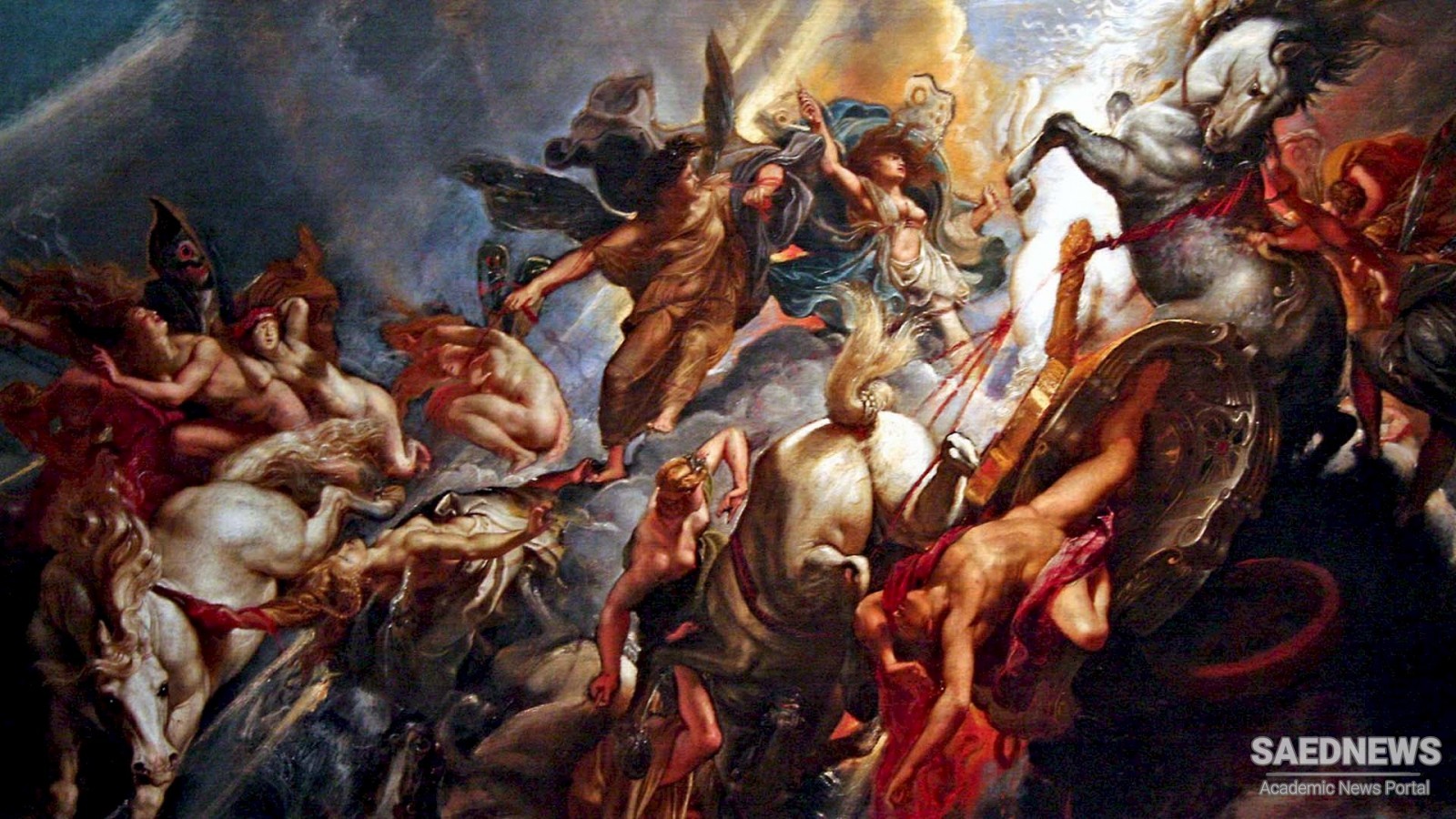Man projects his own conscious and volitional ego into the world about him; he must do so, for it is only by way of analogy that he can attain to any knowledge of that which lies behind phenomena, whether real or imagined, and the first analogy is his own being. Hence he ascribes to the powers feeling, will, and purpose. So far the powers can hardly be called personal, still less anthropomorphic, but when they are possessed of the same psychical properties as man they are on the way to becoming so. The Keres, as the Greeks often call the powers who exercise a pernicious influence on human life, have been compared with bacilli! The comparison is illuminating, although its correctness is doubtful. The question no doubt belongs rather to the domain of semasiology than to the history of religion.
It was ousted by the strongly developed anthropomorphism which also transformed I the powers'. The latter were called daimoms by the Greeks; but the daimones became in great measure personal, anthropomorphie; and the word daimon may also denote one of the great gods. Daemonistic traces in the rites are extremely rare, but the exchange of clothes by bridegroom and bride at the wedding may possibly be so interpreted. The idea may be to mislead the spirits on this critical occasion, just as primitive peoples change the clothes of a sick person so that the spirits of disease may not be able to recognize him but may pass him by.
The belief in daimones peoples the world with spirits. They live in the deserts, among the mountains, in the forest. in stones, in trees, in water, in rivers and springs; they are the occasion of everything that concerns man, they send fruitfulness and dearth, good fortune and disease. It is they that have given rise to the old saying that 'fear created the gods. For man is much more strongly roused to a consciousness of the interference of higher powers in his life when misfortunes come upon him than when things are taking their normal course. As a necessary consequence of this conception, the object of the earliest cult is by one means or another to keep the powers at a distance from life; it is apotropaeic. a warding-off of evil. This view of religion and cult either ignores magic or represents it as harmful, but magic. in its primitive stage, has quite another function. By magical rites men try to secure for themselves and for others fertility and prosperity; magic serves the individual and the social good. And thus appears the higher purpose of religion: it is directed, in the form of magic, towards the general good. a development of which the previous chapter has given many examples.


 Mythological Perspective of Life and Taboos
Mythological Perspective of Life and Taboos














































